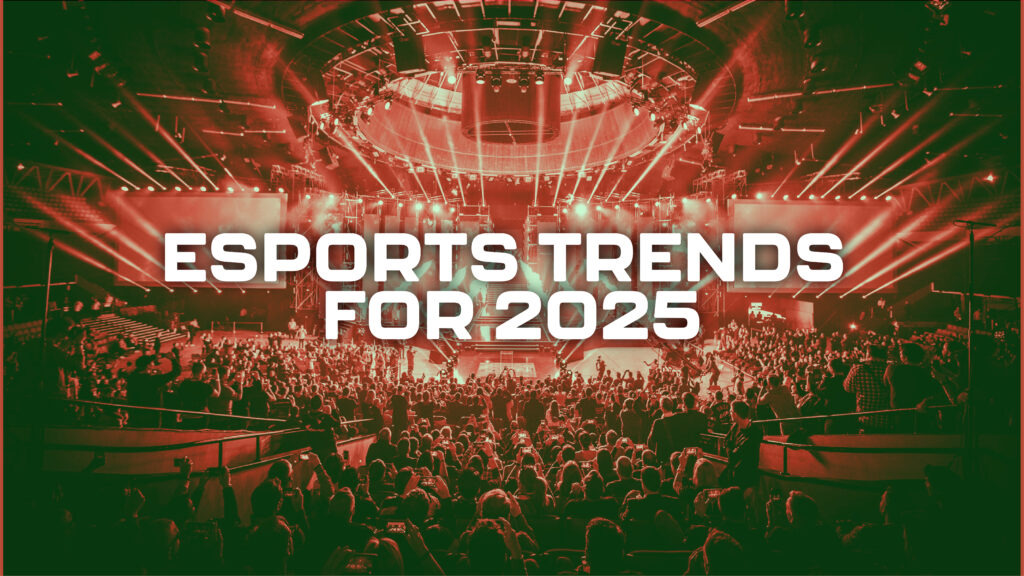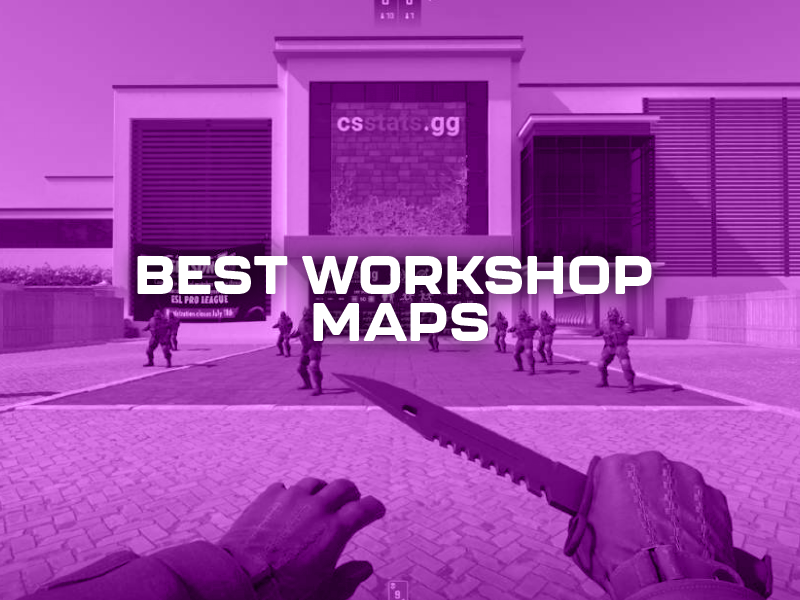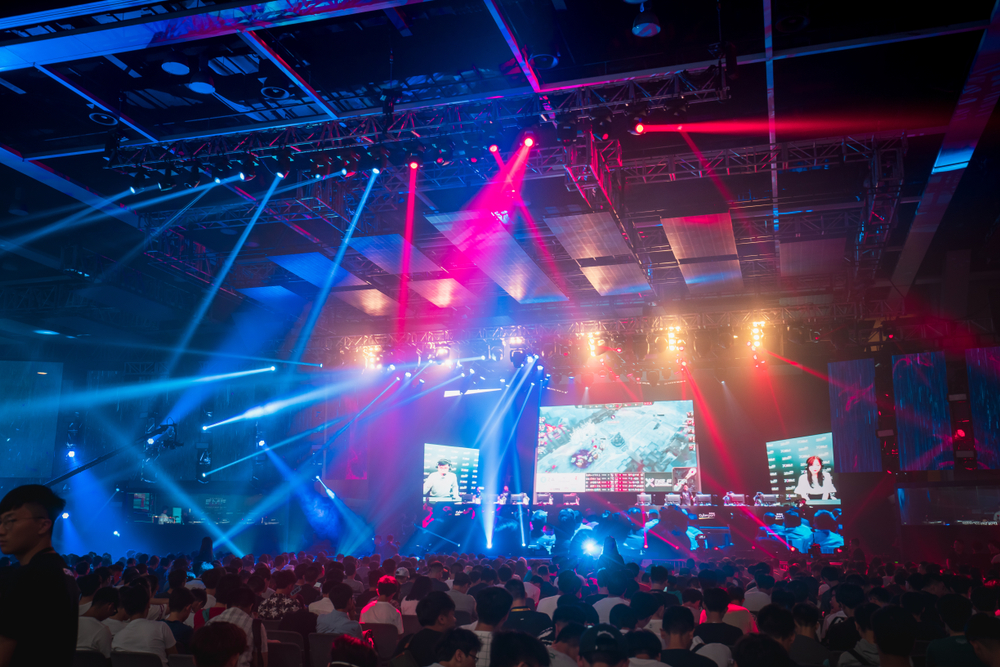The world of Esports continues to evolve, with major trends shaping its future. From the rise of mobile gaming and AI integration to the dominance of popular titles like Valorant, League of Legends, and Counter-Strike, there has been much to reflect on in the past year.
Looking ahead, experts at the University of Cincinnati’s Esports Innovation Lab predict even bigger changes for 2025. As students gather in UC’s state-of-the-art gaming facility to enhance their skills and analyze industry developments, lab leaders have shared their insights on what’s next. Below are the biggest Esports predictions for 2025, as outlined by Esports Innovation Lab coordinator Gianna DiMona and UC Esports Club president Camilo Chaves-Galeano.
1. Mobile Esports Continues to Expand
The mobile Esports industry has seen tremendous growth in recent years, and this trend is set to continue in 2025. No longer confined to PCs and consoles, Esports has become more accessible and affordable, thanks to advancements in mobile gaming technology.
“People can now enjoy their favorite titles without spending thousands on a high-end PC or console,” says DiMona, “while also having the flexibility to play anytime, anywhere.”
Games like PUBG Mobile, Arena of Valor, Clash Royale, and Free Fire have skyrocketed in popularity, proving that mobile gaming is a legitimate force in competitive Esports. Although some traditional gamers once viewed mobile gaming as inferior, that perception is rapidly changing as mobile technology improves, incorporating AI enhancements and smoother performance. With major mobile titles now entering mainstream Esports competitions, their influence is only expected to grow.
2. Mergers, Acquisitions, and Industry Consolidation
As Esports becomes a global powerhouse, it has attracted significant investment and corporate interest, leading to mergers, acquisitions, and consolidations within the gaming industry. Major companies such as Microsoft, Riot Games, Tencent, Take-Two Interactive, and Electronic Arts continue to acquire up-and-coming gaming startups, fueling innovation and competition.
This increasing corporate involvement could have several effects on the Esports landscape:
- Encouraging smaller studios to push creative boundaries in hopes of attracting investment from gaming giants.
- Driving Esports innovation by funding the development of new technologies, platforms, and game mechanics.
- Shaping tournament ecosystems, as large corporations seek to monetize and streamline Esports events.
Another major factor impacting the Esports industry is Saudi Arabia’s growing investment in gaming. The country is heavily funding Esports, as seen with the return of the Esports World Cup in Riyadh and the launch of the first-ever Olympic Esports Games in 2025. The Savvy Games Group, a state-owned Saudi enterprise, has already acquired Esports giants ESL and FACEIT, signaling the region’s commitment to becoming a dominant player in the industry.
“Esports can expect a continued influx of capital from Saudi Arabia as they push to be a global leader in gaming,” says Chaves-Galeano.
3. College Esports Gains More Recognition
The growth of college Esports programs is another significant trend, with 2025 poised to be a breakthrough year. Universities are moving beyond simply setting up gaming labs—they are now developing structured Esports degree programs and microcredentialing courses.
Higher education institutions are beginning to recognize Esports as more than just entertainment—they see it as a valuable career path with opportunities in game development, broadcasting, marketing, and professional gaming. Schools like the University of Cincinnati are actively investing in Esports education, offering programs such as a bachelor’s degree in games and animation and a game development concentration within their IT curriculum.
Financially, collegiate Esports is becoming more sustainable due to:
- Scholarships provided by major Esports brands, reducing financial strain on universities.
- Merchandise sales and sponsorships, generating revenue for college Esports clubs.
- Universities hosting Esports tournaments, further establishing their presence in the industry.
“Even tournament organizers outside nationally established collegiate leagues have begun launching their own collegiate initiatives,” notes Chaves-Galeano.
With more universities embracing Esports, students have an increasing number of opportunities to pursue competitive gaming as a legitimate career path.
4. New Esports Titles Shake Up the Scene
While classics like Valorant, League of Legends, Fortnite, and Apex Legends continue to dominate, players are eagerly anticipating new competitive titles to inject fresh excitement into the Esports ecosystem. Games such as Marvel Rivals, Smite 2, and Deadlock are generating significant hype, bringing innovation and variety to the Esports landscape.
“Many of the most popular titles are over a decade old and struggle to keep their scene engaging,” DiMona explains. “However, the arrival of newer games has sparked excitement while still preserving the legacy of older titles.”
Despite this, longstanding Esports games remain incredibly popular, and fans can expect continued dominance from familiar titles like Valorant, League of Legends, and Counter-Strike in 2025. While new games bring excitement, players still appreciate the competitive depth and familiarity of their favorite classics.
University of Cincinnati: A Growing Esports Powerhouse
The University of Cincinnati has solidified itself as a leader in Esports education and competition, thanks to significant investments in gaming infrastructure.
The UC Esports Innovation Lab, located within the 1819 Innovation Hub, provides:
- High-end gaming consoles and PCs for competitive play.
- A private competition room, allowing students to train and refine their skills.
- A fully equipped broadcast studio, supporting live streaming and content creation.
Students who want to compete at the collegiate level can join the UC Esports Club, which competes in top-tier leagues like the National Association of Collegiate Esports (NACE), the Electronic Gaming Federation (EGF), and the National Esports Collegiate Conference (NECC).
Beyond playing competitively, UC also prepares students for careers in Esports through:
- Degree programs in game development, animation, and Esports management.
- Internship opportunities and networking events.
- Workshops on broadcasting, marketing, and event organization.
With the rapid evolution of Esports, students today have more opportunities than ever to turn their passion into a viable career—and the University of Cincinnati is playing a key role in shaping the next generation of Esports professionals.
Final Thoughts: The Future of Esports in 2025
The Esports industry is poised for another groundbreaking year, with mobile gaming, corporate investments, collegiate programs, and new game titles driving the next phase of growth. As major gaming companies continue to expand, Esports will become even more accessible, creating opportunities for both casual and professional players.
Whether you’re an aspiring pro player, a student looking to enter the gaming industry, or just a dedicated Esports fan, 2025 promises exciting developments that will continue to shape the future of competitive gaming.



































